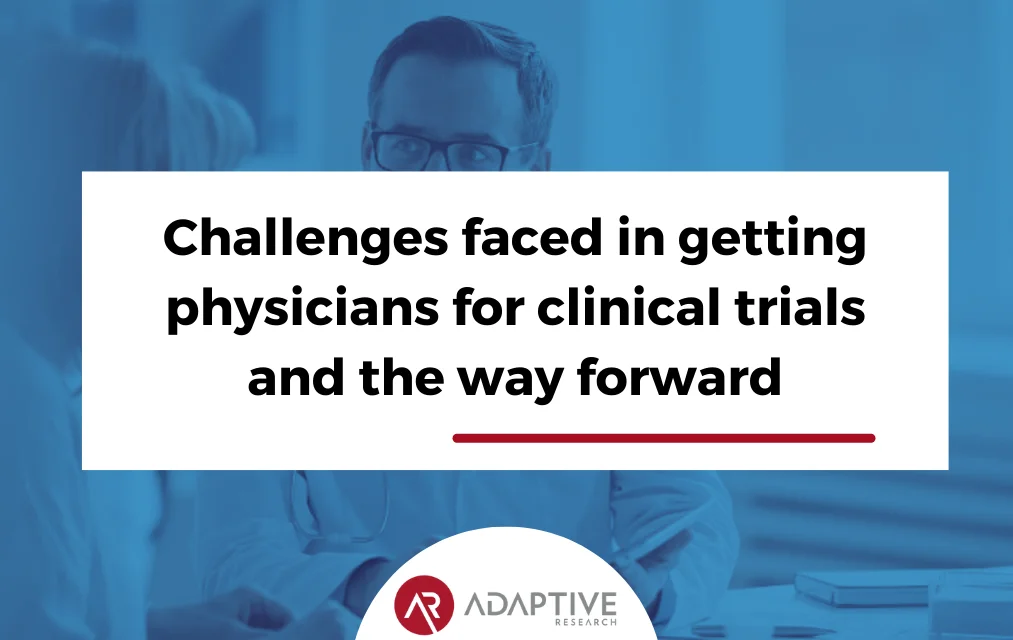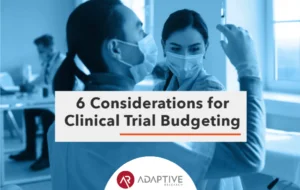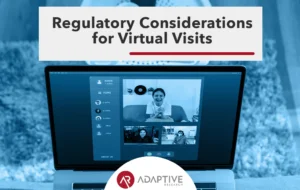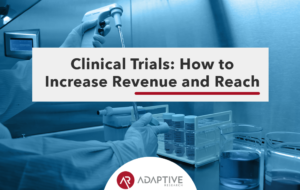The possibility of clinical research is unlikely to be achieved without the greater participation of physicians in the study. Physicians face a variety of barriers concerning involvement in clinical research. These limitations are system-or organization-related as well as research-and physician-related. To motivate physician participation, appropriate organizational and operational infrastructures are required in health care institutes to aid research planning and direction. All physicians should obtain education and training in the fundamentals of research.

What factors limit doctors from conducting clinical trials and the way forward?
- Infrastructure limitations: Operating clinical trials within a practice also necessitates a particular type of infrastructure. For instance, staff members must attain training on informed consent, working with Institutional Review Boards, and research ethics. Additionally, clinicians and staff should be knowledgeable of achievable bioethical issues. Staff members must not put undue force on patients to participate in trials and should also ensure that patients who decline or pull back are not handled differently.
Way forward: Most practices solve this by having distinct staff members who maintain an eye on enrollment, informed consent, and other research-related processes. Most practices must also launch another entity to store the finances and other operations of the clinical trials independently. - Doctors have no room for making profits from clinical trials: Sponsors typically pay clinicians a particular amount per study participant recruited at the practice, contingent on the essentials of the trial. The compensation is typically enough to allow a practice to participate without losing income.
Way forward: Sandoval identifies that profit should not be a solid ground to get involved in clinical trials. He also says that physicians should quit engaging in trials for the money. A much superior objective to participate is “for the patients.” Sandoval states. Participating in clinical trials can provide patients access to brand-new treatment choices or off-label uses of treatments. It can also provide free treatments and care for patients battling with health care costs. Patients may obtain laboratory tests, procedures, and examinations for which insurance companies would not certainly pay. - The “catch 22” problem. Office-based physicians face several barriers which limit them from conducting clinical trials. One is the “catch 22” encountered by physicians who have a research interest but have not previously participated in clinical trials. “Sponsors want to work with experienced practices, but it’s hard to get the experience if you haven’t been part of a trial,” says Fabian Sandoval, MD. Sandoval is an ex-clinical researcher at the National Institutes of Health in the USA. He’s as well the founder of Emerson Clinical Research Institute, a company directed at boosting minority involvement in clinical trials by bringing clinical trial competency to community-based clinics and practices. Good enough, there are solutions to most of these challenges
Way forward: Inexperienced clinical researchers should search for opportunities to volunteer with research groups and role models to discuss and implement the practical issues of conducting clinical research. Or, the doctors can intern at a Fortune 500 healthcare companies such as Pfizer, Abbott, Apple, Google, and others to obtain a rewarding experience.
Even though internship at these companies is fierce, you too can secure an internship placement there and gain relevant experience in conducting clinical research. - Lack of motivation to participate in clinical trials.
Way forward: The research topic/area should be in-line with physician interest, relevant and vital to their field, connected to the real world of clinical practice, and utmost, should have straightforward potential to improve patient care. Research activities integrated into the usual patterns of patient care that do not interfere with the flow of patient care boost the likelihood of physician participation.
There should be a responsible party handling the logistics and dealing with research-related problems and issues. This will ensure minimal impact on clinical practice. Regular feedback, support, and financial compensation will motivate physicians to participate in clinical research.
Feedback regarding the progress and the degree of achievement of goals will help busy clinicians assess their contributions and maintain enthusiasm for the research. - Physicians face challenges in identifying clinical trials. Physicians lacking close ties to academic research centers face challenges in identifying clinical trials as fast as some of their peers with appropriate connections with people in the research organizations. Moreover, there is no incentive for clinicians to share information about research projects with their patients, limiting the faster spread of information regarding clinical trials.
Way forward: The Centers for Medicare and Medicaid Services (CMS) should offer incentives to physicians and clinics to tell their patients about the availability of clinical trials when necessary. Legislative action instructing CMS to formulate a reimbursement code for such counseling for physicians would go a long way in reducing the access gaps to clinical trials.
Physicians living in under-resourced communities would be given a more significant incentive to invest more time in talking about all the available clinical trials, even if the clinical trial sites are far away. Rewarding physicians and clinics for telling their patients about the available clinical trials should be supplemented by more support for decentralized trials. This will necessitate robust help from the Food and Drug Administration.

Clinical trials have been centered around clinical trial sites, locations where patients obtain a new medication, which is evaluated for safety and efficacy. Such traditional trials require that the patient travel to and from the trial site, which is tiresome for many. Decentralization turns these dynamics around, using new approaches through innovative mobile technologies.
How Does Adaptive Research solve the limitations of physicians’ participation in Clinical trials?
Adaptive Research is a healthcare ecosystem that allows community physicians to engage in clinical trials, hence contributing to improved in-need patient access to cutting-edge drugs and technologies.
Here below are the solutions that Adaptive Research offers to solve the limitations which block physicians from engaging in clinical trials;
- Adaptive Research streamlines the whole clinical trial procedure to help physicians concentrate on their clinical acumen and judgment without interruptions from added administrative tasks to advance health care and medicine.
- Adaptive Research also offers on-site clinical research personnel, standardized operating procedures, trial management software, and regulatory support. These on-site tools improve physician and clinical trial participant experience while efficiently delivering the best quality of research data.
Conclusion
Most of the challenges to getting physicians to engage in clinical trials are manageable through proper planning. Adaptive Research is here to streamline the process of conducting clinical trials. For infrastructure limitations, most practices can solve this by having distinct staff members who maintain an eye on enrollment, informed consent, and other research-related processes. Most practices must also launch another entity to store the finances and other operations of the clinical trials independently.
Sources
https://www.ahajournals.org/doi/10.1161/CIRCULATIONAHA.119.040798
https://physicians.dukehealth.org/articles/practice-based-clinical-trials-benefits-and-barriers
https://www.researchgate.net/publication/237071288_Physician_participation_in_clinical_research_and_trials_Issues_and_approaches
https://thehill.com/opinion/healthcare/566851-open-the-patient-physician-conversation-on-clinical-trials?amp
https://www.ncbi.nlm.nih.gov/pmc/articles/PMC3661249/






